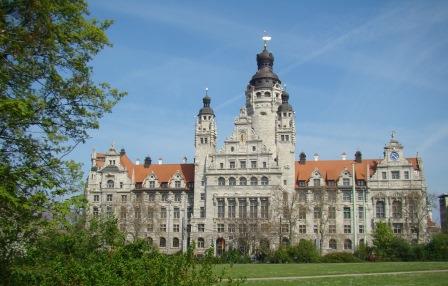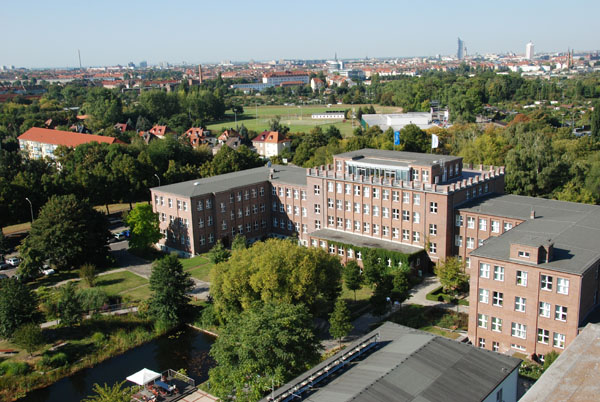Unpacking the political in contemporary discourses on sustainability transformations: Agency, choice, and democratic pathways?
Workshop
Scoping a research area for applied social science
Helmholtz Centre for Environmental Research – UFZ Leipzig / Germany
Nov. 10–11 2016
Download workshop report:
Relevance and Context
Objectives of the workshop
Workshop format and guiding questions
Venue and Accomodation
Relevance and Context
In 2011, the German Advisory Council on Global Change (WBGU) published its flagship report World in Transition and initiated an important and diverse debate about transformations towards sustainability (WBGU 2011).1 Around the same time, various reports by international organizations and panels, such as the UN, OECD, WBCSD and IPCC, also used the term and called for fundamental changes in natural and human systems.2 Natural and social scientific debate on the topic heated up,3 and international research programmes and related topics have emerged.4 As a result, ‘transformation’ has become an umbrella term that performs a function similar to ‘sustainable development’ in the 1990s: It puts ecological problems into their larger political, social, and economic context and brings together different research traditions and policy practices.5
Research on global environmental change and sustainability increasingly goes hand-in-hand with calls for deep social change. Understandings vary as to what sustainability transformations entail and require – especially in contrast to their more incremental counterparts, transitions – and little consideration has been given to the political dimension of the debate, i.e. how, why, and where ‘transformation discourses’ emerge. What role do different groups of actors (states and non-state actors such as experts or bottom-up movements) play in framing and enabling transformations? What political understandings underpin claims about transformation and what are the political implications of each? In the context of energy and climate policy, for example, the term transformation also stands for the recognition that current approaches are often too narrowly constrained around problems of fuel and carbon, energy production technologies and infrastructures, and their costs. Since energy systems are large socio-technical systems that are deeply embedded in broader patterns of social, economic, and political organisation, significant changes are increasingly accompanied by social, economic, and political transformations.6
This workshop aims to bring ‘the political’ back in by nurturing discussions about different dimensions of transformability, agency, and choice in current discourses. Thus, attention will be brought to questions such as the accountability for causes and impacts, the ascription of ‘responsible’ agency and choice for specific actors, and the constitution of their scope of action, as well as to other blind spots of the debate, from rare topics such as ‘personal transformations’ to more general – but nonetheless critical – issues, such as the fit between transformative policy and democracy. Such questions are important because addressing today’s grand challenges requires a better understanding of how real and enduring social transformations come about and how – if at all – they can be initiated, fostered or governed.7
Objectives of the workshop
Since the term ‘transformation’ has been widely diffused among academic and policy making circles, re-adapted and (con-)tested in many ways, it now has a range of largely de-politicised meanings. The objectives of the workshop are thus to rediscover ‘the political’ and:
- take stock of the discussions on transformations (assumptions, dimensions, characteristics and blind spots) in different social scientific disciplines and political contexts;
- question the meaning of ‘transformative’ and to ask to what extent radical change is indeed possible within and compatible with a democratic approach to change;
- explore the academic and practical value of transformation for guiding and integrating applied social science research as well as for informing political practice;
- take steps towards an integrative research agenda and concept of transformations;
- explore whether ‘transformation’ is used as a strategic concept to deal with grand challenges in an effective and socially desirable way,8 or if it is understood as an analytical concept to understand and explain the highly asymmetric and hierarchical characteristics of societies and their trajectories.
To achieve these objectives, we want to combine conceptual and empirical inputs and inquire how the radicalness of change that is often postulated to be necessary for transformations plays out in reality, by looking at empirical research within areas such as consumer policies, energy policy, or small group settings such as transition towns. How do different approaches attempt to deal with particular problems and to what extent could these be transformative?
Workshop format and guiding questions
The workshop aims at facilitating discussions between outstanding researchers from different disciplines. Participants will explore the leitmotif of the workshop in different working groups along agents of sustainability transformations, such as state actors, science and expertise, business, bottom-up social movements, individuals, … To tease out the political character of transformations, each working group will look at transformation from different sides: what does it imply, what is to be transformed, who says so, and how:
- What changes at individual, organisational, cultural, political and systemic levels would be regarded as transformative in different contexts? What are similarities and differences between different theoretical explanations and political practices of transformation? What are the epistemic implications, normative assumptions and political ends guiding the concept of transformation? Is the concept of transformation simply new wine in old bottles (such as Earth System Governance)? Or, how does it differ from other forms of radical social change (such as ‘transition’) and governance (Stirling 2015)?
- Who decides how on the object of transformation and to what end? Who are the potential agents of change, and what are their levers? What does the diagnosis of a need for transformation imply in terms of responsibilities and accountabilities of nation states, non-state actors such as experts and firms, as well as individuals?
- How are processes of transformation shaped and set up? How can changes at the different levels be realized in ways that are socially acceptable and politically legitimate? What types of decision-making processes are required to foster democratic processes of transformation and to overcome path-dependencies, entrenched self-interests, and unjust power distribution? How do powerful interests influence trajectories of change? How has the political played out in ‘real life’ transformation processes, and what lessons can be learnt?
- What effects do these processes have on the ground? Can or should they be measured through classical sustainability criteria?
Venue / Accomodation
The workshop will be held in Leipzig. Leipzig is a city in the federal state of Saxony, Germany. It has around 530,000 inhabitants and is the heart of the Central German Metropolitan Region. Leipzig is located about 150 kilometers (93 miles) south of Berlin at the confluence of the White Elster, Pleisse, and Parthe rivers at the southerly end of the North German Plain.
Leipzig has been a trade city since, at least, the time of the Holy Roman Empire, sitting at the intersection of the Via Regia and Via Imperii, two important Medieval trade routes. At one time, Leipzig was one of the major European centers of learning and culture in fields such as music and publishing. After World War II, Leipzig became a major urban center within the German Democratic Republic (East Germany), but its cultural and economic importance declined, despite East Germany being the richest economy in the Soviet Bloc.
Leipzig later played a significant role in instigating the fall of communism in Eastern Europe, through events which took place in and around St. Nicholas Church. Since the reunification of Germany, Leipzig has undergone significant change with the restoration of some historical buildings, the demolition of others, and the development of a modern transport infrastructure. Leipzig today is an economic center in Germany and has a prominent opera house and one of the most modern zoos in Europe. Leipzig is nicknamed as the "Boomtown of eastern Germany" or "Hypezig".
(source: Wikipedia)

The workshop will take place at the campus of the Helmholtz Centre for Environmental Research − UFZ in Leipzig. The UFZ was established in 1991 and has more than 1,100 employees in Leipzig, Halle/S. and Magdeburg. They study the complex interactions between humans and the environment in cultivated and damaged landscapes. The scientists develop concepts and processes to help secure the natural foundations of human life for future generations.

We have reserved rooms for all participants at the following hotels: Seaside Parkhotel (in the city centre) and Suite Hotel (close to the UFZ campus). If you choose one of these hotels, you will pay a reduced price if you book before October 10th and mention the booking password “BES-Workshop”.
Please try to book via the phone, as the booking passwords usually do not work with online bookings. If you have any questions or concerns regarding your travel arrangements, please contact Jan Wolfrum or Heide Scharfe who will be happy to assist you (heide.scharfe@ufz.de, jan.wolfrum@ufz.de).
1 WBGU (German Advisory Council on Global Change), 2011. World in Transition – A Social Contract for Sustainability, Flagship Report. German Advisory Council on Global Change, Berlin.
2 See, for example, UN, 2012. From Transition to Transformation: Sustainable and Inclusive Development in Europe and Central Asia, New York and Geneva; UNDESA (United Nations Department of Economic and Social Affairs), 2011. World Economic and Social Survey 2011 – The Great Green Technological Transformation. UN DESA, New York; OECD (Organisation for Economic Co-operation and Development), 2012. Green Growth and Environmental Governance in Eastern Europe, Caucasus, and Central Asia, OECD Green Growth Papers, No. 2012-02. OECD Publishing, Paris; WBCSD (World Business Council on Sustainable Development), 2010. Vision 2050. A new agenda for business. WBCSD, Geneva.
3 For a good overview, see O’Brien, K., 2012. Global environmental change (2): From adaptation to deliberate transformation. Progress in Human Geography 36/5: 667–676.
4 Hackmann, H., St. Clair, A.L., 2012. Transformative Cornerstones of Social Science Research for Global Change. Report of the International Social Science Council. ISSC, Paris; JPI Climate, 2011. Strategic Research Agenda for the Joint Programming Initiative “Connecting Climate Knowledge for Europe”. JPI Climate; Mauser, W., Klepper, G., Rice, M., Schmalzbauer, B.S., Hackmann, H., Leemans, R., Moore, H., 2013. Transdisciplinary global change research: the co-creation of knowledge for sustainability. Current Opinion in Environmental Sustainability 5, 420-431.
5 O’Brien (cited above: 670); Brand, U., 2016. “Transformation” as a New Critical Orthodoxy: The Strategic Use of the Term “Transformation” Does Not Prevent Multiple Crises. GAIA – Ecological Perspectives for Science and Society 25, 23-27.
6 Stirling, A., 2015. From controlling ‘the transition’ to culturing plural radical progress. In: Scoones, I., Leach, M., Newell, P. (eds). The politics of green transformations. Routledge: New York.
7 Hackmann and St. Clair (2012), see endnote 4.
8 Brand (2016), see endnote 5.
